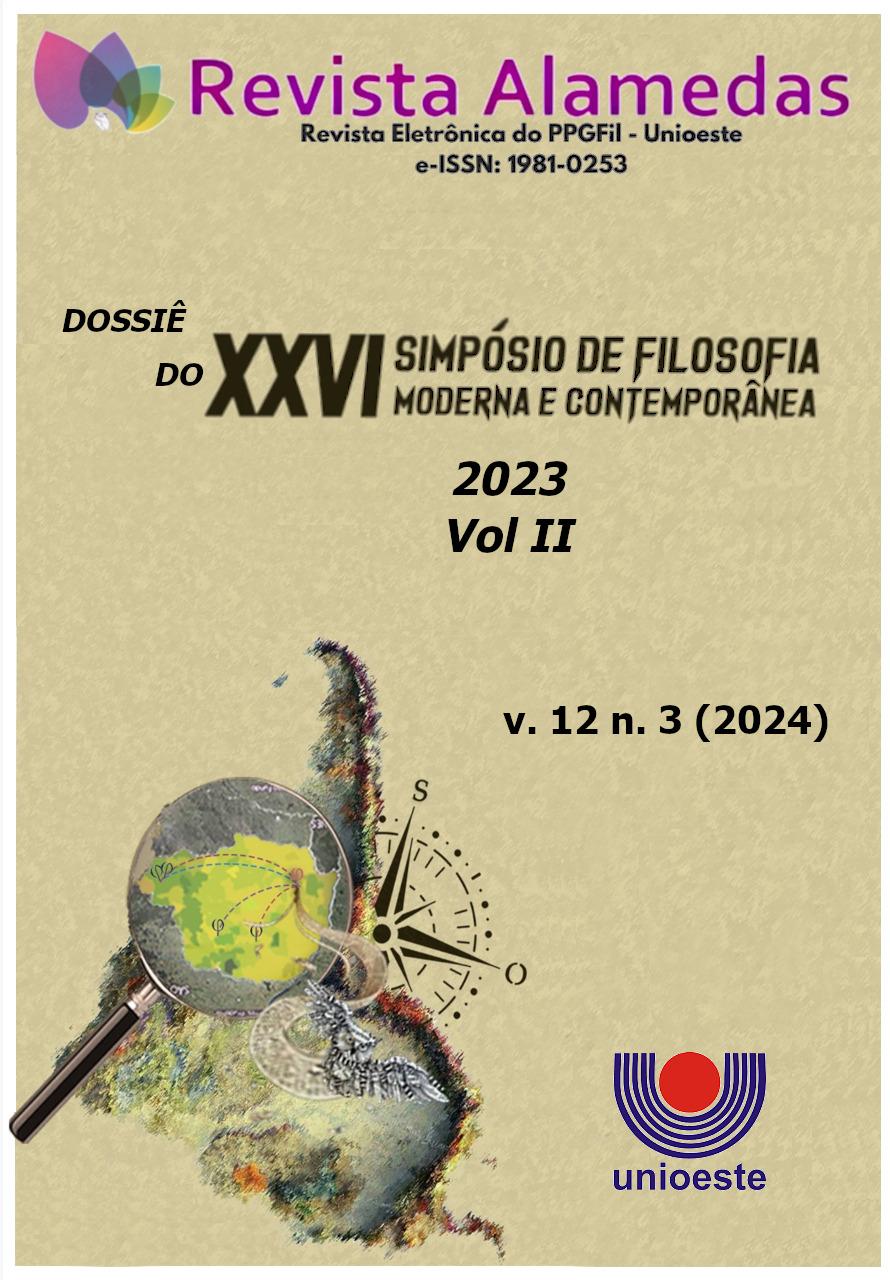METABOLIC DISRUPTION
a visão de Marx sobre a desconexão do ser humano com a natureza pelo capitalismo
DOI:
https://doi.org/10.48075/ra.v12i3.33218Keywords:
Natureza, Metabolismo, Trabalho, CapitalAbstract
Karl Marx, in the academic world, is often associated with the theory of historical materialism and class struggle. However, there is a lesser-known concept that Marx also explored in his works: metabolism. Although many associate the word only with physical processes of consumption and digestion, Marx adopted the concept of “metabolism” to primarily describe work as a process of interaction between human beings and nature. Nature is seen as the vital support of humanity, which must be protected, in which the human being himself is included as a constituent part. Marx was concerned with environmental issues when he realized that human beings are integrated with nature and that the capitalist system was degrading natural resources to a simple instrument for profit. Scholars of Marxian philosophy sometimes make reference to man-nature metabolism as a theme present only in the initial phase of Marx's work, especially in the economic-philosophical Manuscripts. However, contemporary scholars of Marxist thought, such as John Bellamy Foster and Kohei Saito, emphasize that the aforementioned concept is also found in other works, such as the Grundrisse, the London Notebooks and Capital. Foster, in his book Marx's ecology: materialism and nature, created the concept of “metabolic failure”, when analyzing the rupture of the human being's connection with nature within the capitalist system, which exploits natural resources and labor in a abusive, causing both the impoverishment of the soil and the illness of workers. Saito delves deeper into the topic, finding ecological biases in Marx's works and citations of the term metabolism in various parts of Capital, such as “metabolism between man and nature”, “social metabolism” and “metabolism of nature”, contradicting critical analysts of Marxist work, which is said to have been anti-ecological Marx. The objective that guides this research is the analysis of the concepts of metabolism between man and nature, based on Marx, and the supposed failure, or metabolic rupture that, according to Foster, would have been caused by capitalism. The approach to the topic is based on the works Marx's ecology: materialism and nature (2005), by John Bellamy Foster and Karl Mark's ecosocialism: capitalism, nature and unfinished critique of political economy (2021), by Kohei Saito. These are essential readings to understand Karl Marx's thoughts regarding the dissociation of human beings from nature caused by the capitalist system.
Downloads
Published
How to Cite
Issue
Section
License
Copyright (c) 2024 Alamedas

This work is licensed under a Creative Commons Attribution-NonCommercial-ShareAlike 4.0 International License.
Aviso de Direito Autoral Creative Commons
Política para Periódicos de Acesso Livre
Autores que publicam nesta revista concordam com os seguintes termos:
1. Autores mantém os direitos autorais e concedem à revista o direito de primeira publicação, com o trabalho simultaneamente licenciado sob a Licença Creative Commons Attribution que permite o compartilhamento do trabalho com reconhecimento da autoria e publicação inicial nesta revista.2. Autores têm autorização para assumir contratos adicionais separadamente, para distribuição não-exclusiva da versão do trabalho publicada nesta revista (ex.: publicar em repositório institucional ou como capítulo de livro), com reconhecimento de autoria e publicação inicial nesta revista.
3. Autores têm permissão e são estimulados a publicar e distribuir seu trabalho online (ex.: em repositórios institucionais ou na sua página pessoal) a qualquer ponto antes ou durante o processo editorial, já que isso pode gerar alterações produtivas, bem como aumentar o impacto e a citação do trabalho publicado (Veja O Efeito do Acesso Livre).
Licença Creative Commons
Esta obra está licenciada com uma Licença Creative Commons Atribuição-NãoComercial-CompartilhaIgual 4.0 Internacional, o que permite compartilhar, copiar, distribuir, exibir, reproduzir, a totalidade ou partes desde que não tenha objetivo comercial e sejam citados os autores e a fonte.


